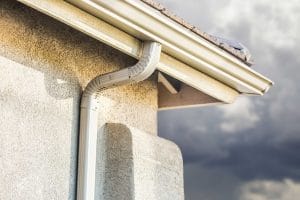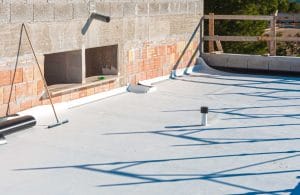
During storms, hurricanes, and limb-falling events, roofs can take a beating. This leaves homeowners scrambling to repair the damage. Not all damage to roofs is caused by inclement weather; leaky areas can eventually decay and require the entire roof to be replaced.
The roofing insurance claim process’s confusing maze can be overwhelming when dealing with damage to a roof. Insurance adjusters, expert roofers, independent adjusters, and mortgage companies are frequently involved in roofing insurance claims. In addition to dealing with the property damage, homeowners must also navigate the insurance claim filing process.
Knowledge Is Power
In most cases, homeowners don’t bother to read the fine print of their insurance policies and instead rely on the companies to tell them what is and isn’t covered. They know it and they take advantage of it. Request a copy of your insurance policy from your agent if you don’t already have one, and read it carefully. If you ask for information, your agent should be able to give it to you right away.
Typically, Two Types Of Coverage Exists
When it comes to insurance, companies may not make it clear that there are two distinct types of coverage available in the majority of states. In the event of a covered event, replacement policies are the most common type of coverage that pays to have your roof restored to new condition.
Repair coverage is a common type of insurance. A portion of the replacement cost is covered by the repair coverage, which is determined by the age and material of the roof. The value of your policy and your roof depreciates over time. Make sure you understand the fine print of your insurance policy and the details of the coverage you have.
What Insurance Companies Won’t Tell You
- The majority of homeowner’s insurance policies demand immediate coverage for a ruined roof.
- Secondary damage claims are typically denied if necessary measures to protect the roof after the initial damage have not been taken. As a result, any water or wind-damaged ceilings, walls, flooring, electronics, or other property will not be covered if the roof was not adequately guarded against damage.
- Use a tarp to protect your home while you wait for a reputable, licensed, and bonded roofing company to fix the roof.
- In most states, homeowners have 30-60 days to file damage claims; if they fail to do so, their claims may be denied.
- Claims for roof repair and roof replacement are closely examined by insurance companies. In addition to the insurance inspector, hire a third-party roofing inspector to ensure complete coverage.
- Accepted insurance claims should cover the cost of replacing the roof with the same type of materials. In some cases, an insurance adjuster will offer a settlement that includes compensation for subpar construction.
Cover Your Bases
Insurance companies exist to make a profit, and homeowners should keep this in mind. In the event of damage to your roof, having a thorough understanding of your insurance policies, asking questions, acting quickly, and employing professional roofers and independent roof inspectors will help you be prepared.




